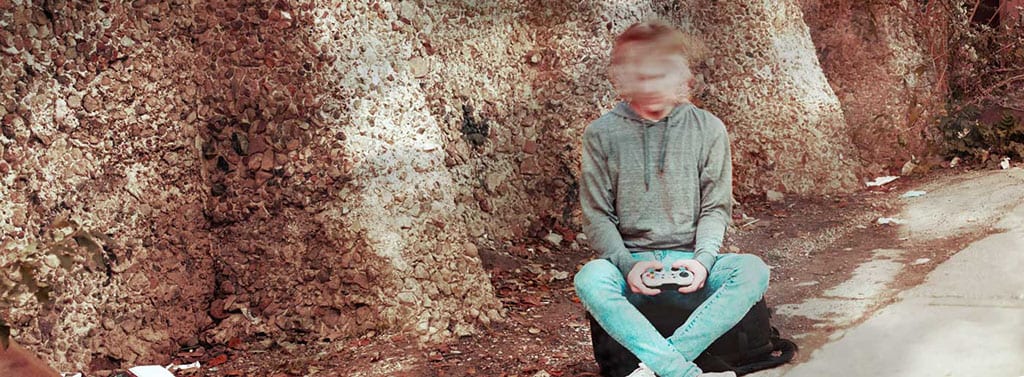It’s 2011 – a young man has just immolated himself in Tunisia and the Arab Spring is kicking off across the Middle East. Meanwhile in Stockport Ben writes earnest sounding articles for his school newspaper and plays Call of Duty on his Xbox.
The play opens as Ben chats online to his gaming partner, Jibreel – a teenager living in Syria, just at the point when protestors are beginning to make a stand against al-Assad. Ben becomes convinced that Jibreel is in danger. He steals his dad’s wallet and makes the trip to Syria where he finds Jibreel in an internet cafe, but is convinced that he’s an imposter sent by al-Assad. Bizarrely, it transpires he’s had a psychotic episode, and the play suddenly becomes about his apparent bipolar disorder.
The play is very obviously thematically confused. Syria and mental health are two enormous and challenging subjects, and the connection between them is by no means clear. If you’re going to write a play about both, it had better in some way enlighten us as to what their relationship is. I could suggest possible theories – but none of these would be derived from my watching of the play.
Relatedly, there’s an absence of substantial scenes. The play has a lot of plot, and characters delivering plot – but it lacks the clashes of outlook you might expect from a play about Syria, or from a play about mental health. What conflicts do arise (a bullying scene / parents bickering) are, by and large, thematically divorced from either of these issues. The one scene where the play’s apparent subject matter does inform the dramatic focus (when Ben improbably finds Jibreel) is mostly just an opportunity to exhibit Ben’s mental instability, and so there’s no wrestling with any of the related topics. It’s all a very strange experience – as if the playwright was frightened of actually confronting their chosen subject.
Another peculiarity is the way in which the play is stuck in 2011. It’s full of references to volcanic ash, royal weddings and people putting cats in bins. Which would be fine, if it were indirectly about the present. But there’s very little (apart from a token line at the end of the play questioning what 2012 might look like) which really says anything about the cataclysmic events that followed in Syria. Which is a pretty major shortcoming for a play with so topical a subject mater.
Bethany Wells’ design is great – it’s innovative, simple and it looks good. Joe Attewell and Ali Ariaie give solid performances – and their scenes feel by far the most truthful and nuanced. But none of this redeems a play that is at best jumbled, at worst gratuitous.

